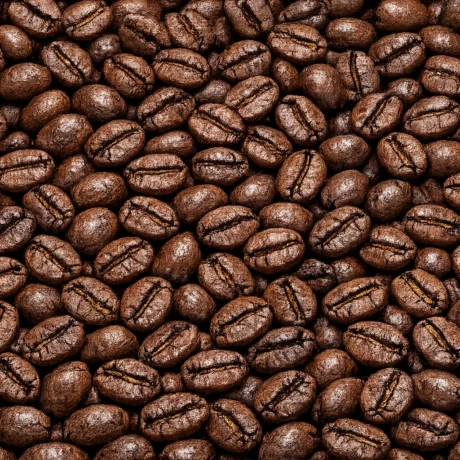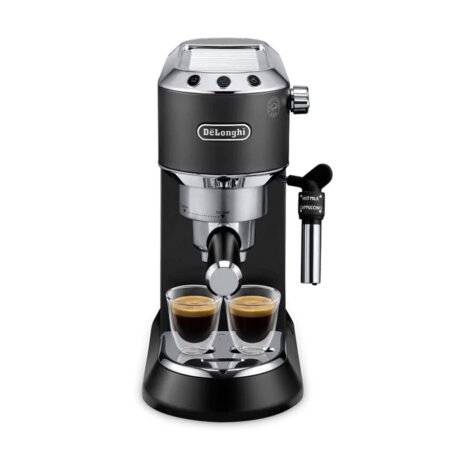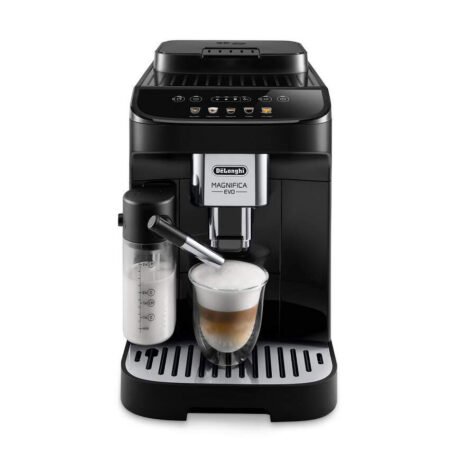Have you ever looked at a handful of coffee beans and thought, “What if I just ate these?” Maybe you’re in a rush, forgot your morning brew, and wondered—does eating coffee beans give you caffeine?
Short answer: Yes. But how much, how fast, and whether it’s worth it? That’s a whole different cup of coffee.
Let’s break down what really happens when you munch those beans—and why your usual brew might still be the better buzz.
What’s Inside a Coffee Bean?
Before we answer “does eating coffee beans give you caffeine,” it helps to understand what’s packed inside those roasted little nuggets.
Coffee beans aren’t just crunchy flavor capsules. They’re natural caffeine bombs, containing about 6–12 mg of caffeine per roasted bean, depending on the variety and roast level. That means chewing 10 beans = one shot of espresso. Sounds efficient, right?
But here’s the catch: caffeine from beans is absorbed differently than brewed coffee. Your body has to digest the fibrous structure of the bean before the caffeine can do its thing. That makes the effect slower, smaller, and less predictable than sipping a cup.
👉 Curious how much caffeine is in your cup? Find out here.
Does Eating Coffee Beans Give You Caffeine Like Coffee Does?

Yes—but not quite the same way. Drinking coffee gives your body an efficient caffeine extraction. Hot water pulls it straight from the grounds, delivering a near-immediate jolt.
By comparison, eating coffee beans:
Releases caffeine slower
Delivers less caffeine overall
May cause digestive discomfort if overdone
So while eating coffee beans does give you caffeine, it’s not the most comfortable or efficient method.
How Many Coffee Beans Equals a Cup of Coffee?
Let’s break it down simply:
1 cup of coffee = ~95 mg caffeine
1 roasted bean = ~10 mg caffeine
You’d need to chew 9–10 beans to match a regular cup. That’s a lot of chewing—and probably not something you want stuck in your teeth during your morning meeting.
Need a smoother kick? Try mastering pour-over brewing or explore the perfect French press ratio.
What Happens If You Eat Too Many Coffee Beans?
This is where things get messy. Sure, eating coffee beans gives you caffeine—but there are side effects no one talks about.
Overconsuming whole beans may lead to:
Stomach irritation (oils + acids from beans)
Digestive issues like cramps or acid reflux
Caffeine overload, especially if you’re also drinking coffee
Insomnia or jitteriness, if you’re caffeine-sensitive
Especially for those with a sensitive stomach, this crunchy shortcut can backfire.
Want to keep your beans in top shape? Learn why a coffee canister matters.
Safer (and Tastier) Ways to Get Your Caffeine Fix
If you’re wondering does eating coffee beans give you caffeine because you’re in a rush—don’t worry. You’ve got smarter options:
☕ Pour-over or French press for slower, richer caffeine
⚡ Espresso or cold brew for a faster hit
💊 Caffeine supplements (in moderation)
🍫 Chocolate-covered coffee beans – smoother, gentler on the gut
Looking for the best beans to match your method? Explore our Aceh Gayo green coffee guide.
So, Does Eating Coffee Beans Give You Caffeine? Final Verdict
Let’s recap:
✅ Yes—eating coffee beans gives you caffeine
⚠️ But it’s less efficient, slower, and can upset your stomach
☕ Brewed coffee is safer, smoother, and more enjoyable
💡 There are better options—like brewing smarter or trying chocolate-covered beans
Still curious how different methods affect flavor and function? Discover how fermentation changes coffee.
Would You Rather Munch or Brew?
Sure, you can chew your way to caffeine. But why crunch when you can sip smarter?
Next time you’re tempted to pop a bean, remember: your brew isn’t just tradition—it’s science, flavor, and comfort combined.
Ready to level up your coffee game? Here are 7 secret tricks to make your coffee better than a coffee shop.





